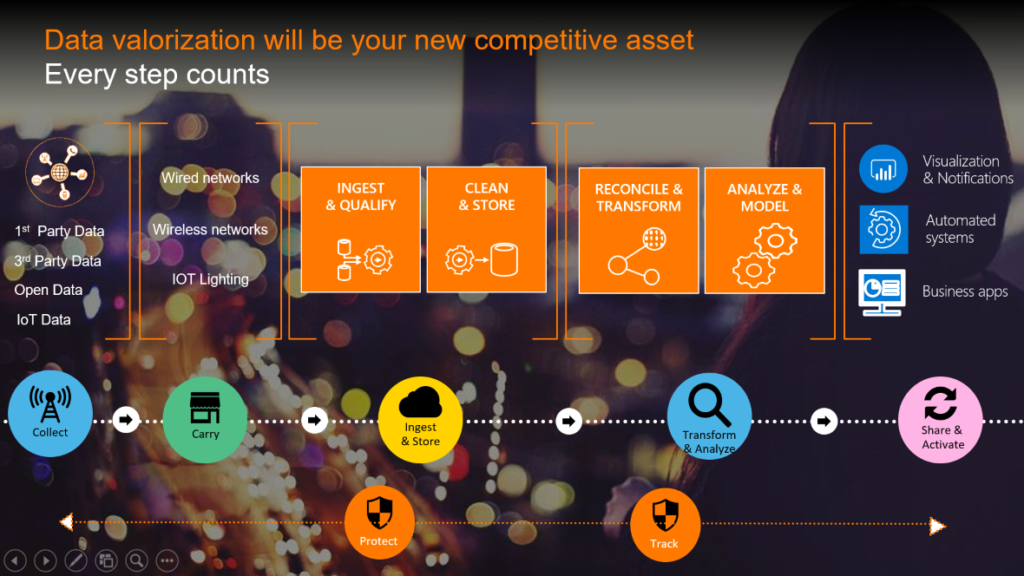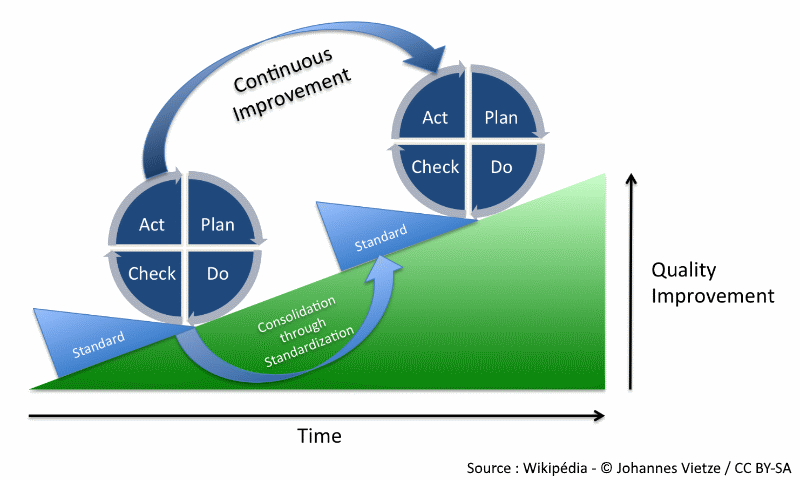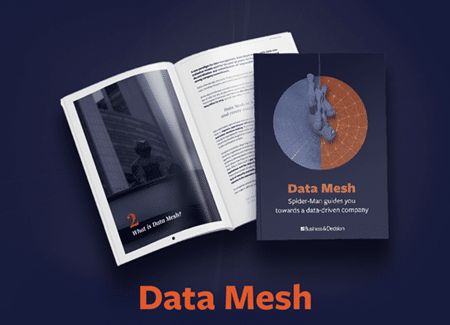In previous articles, we mentioned that new work practices, such as the building of flexible architectures and services, and the provision of support to companies in customer success management mode, are emerging. However, what we did not mention is the underlying role played by data in each of the cases…

No continuous improvement and no performance without systematic, objective measurements
Every use case mentioned in our previous posts presupposes the measurement of performance and contribution to business goals using key indicators. An approach which is by no means a novelty since all finance departments, through their financial controllers, carry out such analyses within the context of cost accounting. Similarly, all Marketing departments measure marketing campaign performance, using increasingly complex measurement tools to compare performance between media, advertising formats, etc. and do so with boundless creativity.
We, at Business & Decision, boast Digital Analytics specialist teams, who can, not only provide recommendations based on collected data, but also advise on how best to collect this data. And mastering collection is the number one challenge facing all companies today, is it not? In fact, we believe data collection to be the very first decisive step of the data journey; one requiring technical expertise as well as knowing which data to collect and how.

But let us not dive too deep into the subject and simply remember that the famous Deming wheel principle, Plan-Do-Check-Act (or Plan-Do-Check-Adjust), itself hinges on the collection of relevant data to enable quality control and continuous improvement (source: Wikipedia).

Privacy-by-design/Measurable-by-design
Even though the merits of following these principles when developing IT applications/solutions is quite clear, it is still a somewhat rare occurrence. And yet, we can see the day coming when designing and deploying business applications without a dedicated data collection and analysis brick will no longer be possible. This will constitute basic good practice because without an objective measuring element, how will we assess a solution’s quality and make recommendations?
For example, here are a few questions that could prove helpful depending on application type and use context:
- Which functions/pages are most used? What are the user paths?
- What are the user profiles? What are the contexts of use?
- How many return or do not return to the application?
- Is there a search for updates and are they taken advantage of?
In brief, the objective here is to capture telemetry (telemetry is a technique used to obtain information from applications installed on a computer or any other device) from all web applications and to use it as a lever for continuous improvement, exactly as is already being done, quite routinely, in digital marketing and mobile marketing.
Usage analysis for all new business applications is possible.
At a time when low-code type applications are proliferating, it would not be surprising that companies choose to forgo organization-wide efforts in terms of usage analysis. However, it should be noted that even in such scenarios, doing so remains not only entirely possible, but also vital….
For example, it recently became possible, in the Microsoft environment, to add this telemetry to any Dynamics application, via Azure Insights. As a result, after a few clicks and a little patience, all the usage data mentioned above is made available in dashboard format and connected to Power BI (attention should be paid to confidentiality issues and notices to be displayed for users, of course).
Of course, these tools do not support all KPIs by default. Some performance indicators mentioned in our previous post regarding the new Customer Success Management will have to be calculated using other means. Nevertheless, we firmly believe that this functional brick is one that has now become essential, thereby signalling an evolution of the integrator profession.
















Your email address is only used by Business & Decision, the controller, to process your request and to send any Business & Decision communication related to your request only. Learn more about managing your data and your rights.